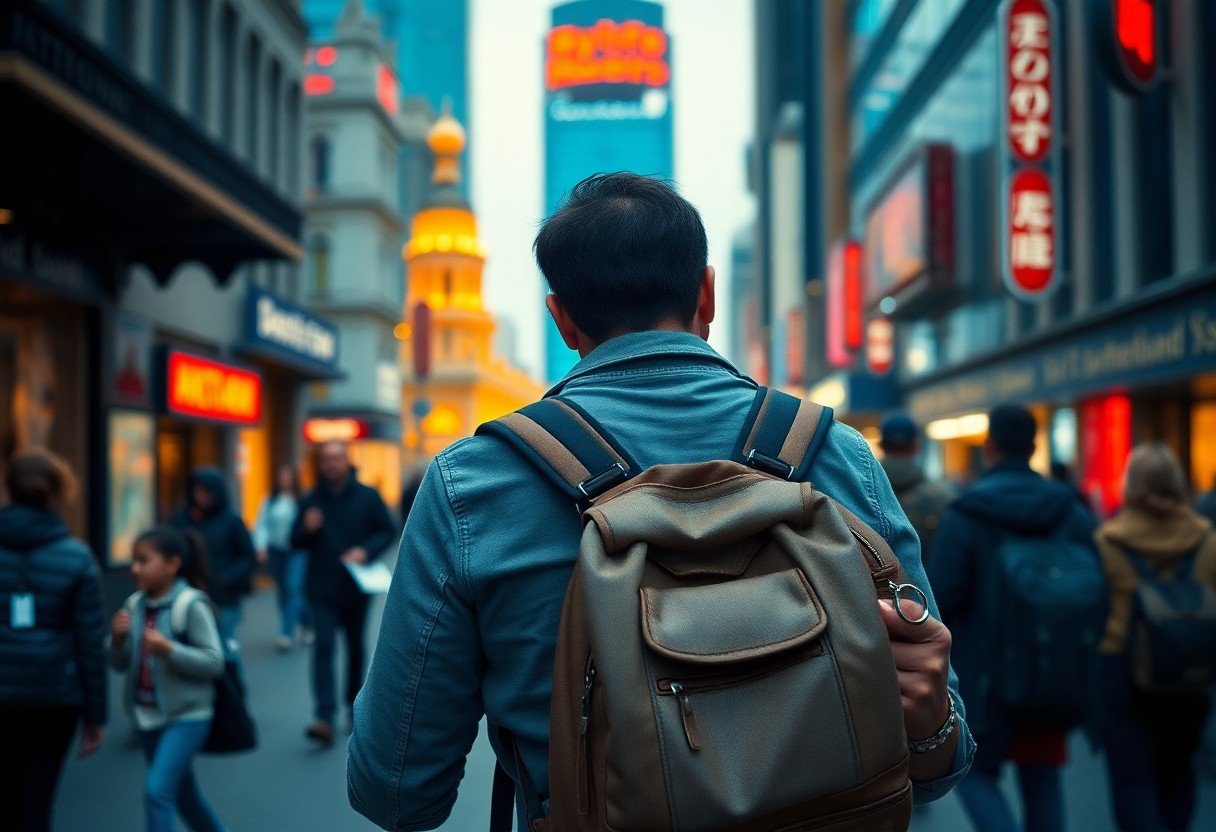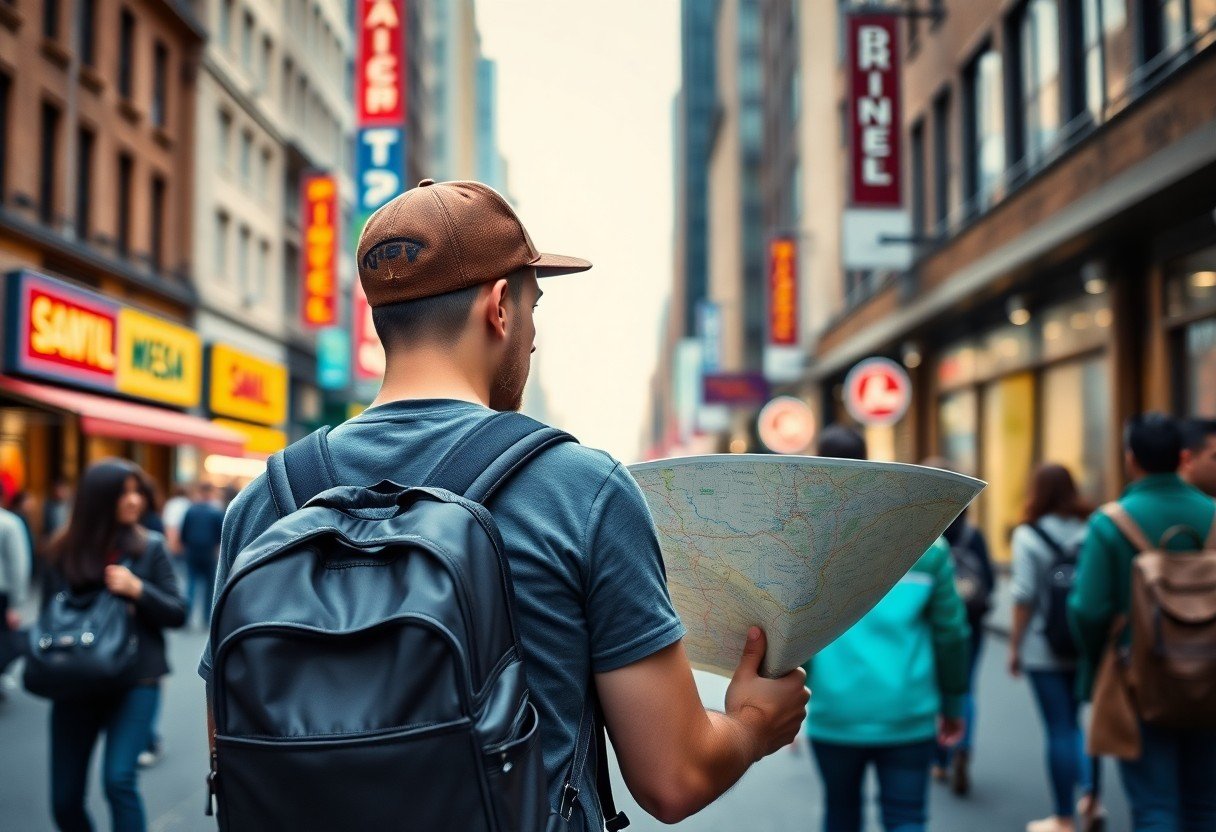Traveling brings excitement and adventure, but it’s vital to prioritize your safety at every destination. You can significantly reduce risks by planning ahead and staying aware of your surroundings. Familiarize yourself with local customs, keep your belongings secure, and always have a reliable way to contact help. By taking these simple yet effective precautions, you can enjoy your trip while keeping potential dangers at bay.
Understanding Your Destination
The success of your travel experience largely depends on how well you understand your destination. Familiarizing yourself with the local culture, language, and geography not only enhances your enjoyment but also helps you navigate challenges you may face. By immersing yourself in the local atmosphere, you can feel more at ease, ensuring your trip is both fulfilling and safe.
Research Local Laws and Customs
You should take the time to familiarize yourself with the local laws and customs of your travel destination. Each country has its unique set of regulations and social norms that may differ significantly from your own. Understanding these can help you avoid unintended offenses and ensure a respectful engagement with the local culture.
Know the Safe and Unsafe Areas
Destination safety can vary dramatically across different neighborhoods and regions. With local crime rates and safety concerns fluctuating, it’s important to identify and familiarize yourself with safe and unsafe areas before your trip. Utilize resources such as travel forums, local news websites, and maps to pinpoint where you should and shouldn’t venture, especially after dark. Being informed can protect you from potential dangers and allow you to enjoy your journey more fully.
Preparing for Your Trip
One of the best ways to ensure your safety while traveling is to start your preparation early. Before you launch on your journey, take the time to research your destination, including local laws, customs, and any travel advisories. Additionally, have a plan in place for emergencies, which may include important contacts, local hospitals, and nearby embassies. Proper planning provides peace of mind and allows you to focus on enjoying your travels while minimizing potential risks.
Packing Smart and Secure
Packing wisely is vital for protecting your belongings and ensuring your safety. Invest in durable luggage, and never pack valuables such as passports or jewelry in checked bags. Use a combination lock on your suitcase and carry a crossbody bag to keep important items close. Organize your travel documents, and consider carrying a portable charger to stay connected. Thoughtful packing helps you travel efficiently while safeguarding your possessions.
Travel Insurance: Why It’s Essential
Any seasoned traveler will tell you that securing travel insurance can save you from unexpected financial burdens. Protect yourself from unforeseen circumstances by selecting a reliable, comprehensive policy tailored to your needs. Travel insurance can cover medical emergencies, trip cancellations, lost luggage, and other related issues, alleviating the stress of potential setbacks.
Essential for maintaining your peace of mind, travel insurance offers safety nets that can be *indispensable* during your trip. If you face a sudden medical emergency overseas, your policy could cover *substantial medical expenses*, preventing a potential *financial crisis*. Additionally, in case of travel disruptions, having insurance ensures you won’t be left *stranded* with unexpected costs. Investing in travel insurance is a simple yet effective way to *protect* yourself against unforeseen incidents, allowing you to travel with confidence.

Staying Safe During Your Travel
Any trip can present unexpected challenges, so it’s vital to stay alert and informed. Always familiarize yourself with your destination’s safety concerns and be aware of your surroundings. For more comprehensive guidance, you can check out Tips for Staying Safe While Traveling. Staying proactive can help enhance your travel experience and ensure your safety.
Transportation Safety Tips
There’s no shortage of ways to get around while traveling, but you should prioritize your safety. Here are some key tips to consider:
- Use reputable transportation services
- Be cautious when using public transport
- Keep emergency contacts easily accessible
After applying these guidelines, you’ll feel more confident and secure while navigating unfamiliar areas.
Keeping Your Belongings Secure
With careful planning, you can keep your belongings safe while traveling. Always utilize secure bags and be mindful of your surroundings when accessing your valuables. Don’t leave your items unattended, especially in crowded places. Consider using money belts or hidden pouches to store your crucial documents and cash securely.
Tips for securing your belongings include keeping your valuables close and using anti-theft backpacks. Always be cautious in busy areas where pickpockets are common. You should also consider investing in tracking devices for your important items. This will offer peace of mind during your travels and help in case of possible loss or theft.
Using Technology Wisely
All travelers can benefit from using technology wisely to enhance their safety and ensure a smooth journey. By incorporating various digital tools, you can access vital information, stay connected with loved ones, and navigate unfamiliar places more easily, all while safeguarding your personal data. It’s important to find the right balance between convenience and security to make your trip enjoyable and worry-free.
Apps for Safety and Navigation
With the right apps on your smartphone, you can improve your travel safety and navigation significantly. Consider downloading offline maps, emergency contact locators, and travel safety guides. These resources allow you to access information without relying on public Wi-Fi, reducing the risk of unwanted exposure to harmful situations. Make sure to keep your apps regularly updated to benefit from the latest safety features.
Cybersecurity While Traveling
Even as you travel, it’s vital to prioritize your cybersecurity to protect your sensitive information. Public Wi-Fi networks in airports and cafes can be tempting, but they often lack adequate security measures. Use a reputable VPN for safer internet browsing, and avoid accessing personal accounts or conducting financial transactions on unsecured networks to keep your information safe. Additionally, enable two-factor authentication on your accounts for an added layer of protection.
Apps can significantly help enhance your cybersecurity while traveling. Always ensure your device’s operating system and applications are updated to fix any known vulnerabilities. Utilize strong, unique passwords for your accounts, and consider using a password manager to keep track of them. When using public Wi-Fi, limit your online activities to important browsing, and never access banking or sensitive information. If you suspect your device has been compromised, act quickly by disconnecting from the network and running a security scan.

Communicating Your Itinerary
For a successful trip, it’s vital to communicate your itinerary to loved ones. This ensures someone knows your travel plans in case of emergencies. Share your travel route, accommodation details, and main activities. For additional Safety Tips for Traveling, consider discussing how your itinerary can impact your safety.
Sharing Plans with Family and Friends
To ensure your safety while traveling, share your plans with family and friends. Provide them with details about your destination, travel dates, and accommodation. This way, if something goes wrong, they will know where to look for you and can alert authorities if needed.
Emergency Contacts: Who to Notify
Communicating your plans goes beyond just sharing itineraries. It’s vital to be clear about who will be your emergency contacts in case of an unexpected situation. Provide friends or family members with the contact details for local authorities, nearby embassies, and your accommodation. This ensures that if you face any issues, they can assist promptly. Stay connected and keep your phone charged to facilitate communication during your travels.
Notify your emergency contacts of your plans, including your travel itinerary and contact details at your destination. If any emergencies arise, they will be able to reach out promptly, whether it’s contacting a local authority or notifying family in your home country. Having a network of reliable contacts means you’ll have support in any situation, connecting you swiftly to necessary help if needed.
Health and Safety Precautions
Your health and safety should always be a priority while traveling. Taking necessary precautions can help prevent illness and ensure a safe trip. Equip yourself with basic first aid supplies, maintain proper hygiene, and stay hydrated. Also, familiarize yourself with local emergency numbers and healthcare facilities in your destination. Being prepared can significantly enhance your travel experience and give you peace of mind.
Vaccinations and Health Regulations
Safety is your best ally when it comes to travel health. Before heading out, check with healthcare providers for recommended vaccinations based on your destination. Some countries have specific health regulations that require proof of vaccination for diseases like yellow fever or hepatitis. Staying informed will protect both you and the communities you visit.
Staying Aware of Local Health Risks
On your journey, it’s important to stay informed about health risks that may affect you and your fellow travelers. Research potential issues likecommon diseases in the region, air quality, and food safety. Local news and travel forums can be valuable resources for recent updates on health advisories.
Local health risks can vary significantly between destinations. For instance, in tropical regions, you may need to take precautions against mosquito-borne diseases, while urban areas may pose threats due to pollution or high COVID-19 case numbers. It’s advisable to consult health authorities or travel advisories to understand specific conditions you might encounter. This knowledge allows you to adapt your travel plans and take necessary precautions, ensuring a safer and more enjoyable experience abroad.
Summing up
Presently, prioritizing your safety while traveling can greatly enhance your experience. By staying informed about your destination, keeping your belongings secure, being aware of your surroundings, and having emergency contacts ready, you can navigate new environments with confidence. Additionally, knowing local customs and cultural norms helps you blend in and respect the community. With these important tips in mind, you can enjoy your travels while minimizing risks and staying protected.









